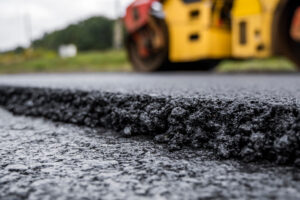Media & news

More Climate Nonsense
Sep 3, 2024
Two months ago, I wrote an article on climate nonsense. I focused on silly solutions to climate change concerns like how we shouldn’t use hot water, on how climate change needs to be curbed to protect outdoor concerts, and on starvation protests meant to coerce governments to act on an individual’s personal beliefs.
Climate change and its reactions are serious issues that demand serious responses. This month, I discuss more of the emotional nonsense that is dumped daily on the public to try to influence an immediate stoppage of fossil fuels.
A May 13 article in The New York Times, “As Insurers Around the U.S. Bleed Cash from Climate Shocks, Homeowners Lose,” states “insurers are losing money, even in states with low hurricane and wildfire danger, [because] climate change produces more severe weather… The insurance turmoil caused by climate change – which had been concentrated in Florida, California and Louisiana – is fast becoming a contagion, spreading to states like Iowa, Arkansas, Ohio, Utah and Washington.” As a result, the article states, insurance companies are raising premiums by as much as 50% or more, cutting back on coverage or leaving entire states altogether.
Dave Jones, former California Insurance Commissioner and now director of the Climate Risk Initiative at the University of California Berkley Law School, is quoted: “I believe we’re marching toward an uninsurable future [in many places].” As evidence, the article states Secura Insurance, a company that once sold homeowners coverage in Iowa and nine other states – and, on Feb. 1, began dropping all its homeowners outside its home state of Wisconsin – is planning next year to drop customers in Wisconsin, too.
So why would insurance costs rise because of alleged climate-change-caused issues like floods, wildfires, hurricanes, and rising sea levels in Iowa and Wisconsin, when those states have very few of those events? It is more likely insurance companies haven’t been able to increase their rates quickly enough to cover home repair costs and construction labor rates driven higher by inflation.
The article admits as much with a statement answering its own questions: “Several factors are helping to drive the losses in homeowners insurance, including the rising cost of labor and materials to rebuild homes, outdated building codes, and the fact that Americans keep moving to areas that are at high risk of flooding or wildfire.” (Also, climate change must be raising boat insurance costs – my premiums increased by more than 50% yesterday).
In more nonsense, Inside Climate News published an article on July 30, “Supercharged by Climate Change, Western Megafires Explode Simultaneously.” The title makes it sound like climate change is causing spontaneous combustion across the West. However, the article reveals the Park Fire, which burned more than 380,000 acres in Northern California, was started by an arsonist, not climate change.
Similar wildfires are burning in Oregon and Canada. According to the National Oceanic and Atmospheric Administration (NOAA), these conditions are more common because climate change is fueling longer and more active fire seasons. But the Inside Climate News article closes with a very obvious conclusion, “Experts are advocating for more prescribed burns – smaller fires that could help clear out some of the dry brush the fuels the flames.” That practice – historically rejected in California and the far West – has been used in the South for years to suppress wildfires. What a novel idea.
Another Inside Climate News article on July 16 reported that climate change is fueling longer and more severe heat waves, resulting in second- and third-degree burns to people walking barefoot on the roads. Dr. Clifford Sheckter stated, “People that are dying from these types of burns are not people who just end up blistering on their feet. Your body just literally sits there and cooks. When somebody finds you, you’re already in multisystem organ failure.”
It has been hot in the South for a long time. I remember asphalt melting and running on the roads. When I was a kid, we would put sticks in it and smear it around. However, we were smart enough not to walk in it barefoot. We walked on the grass. If people are going into organ failure and dying from walking on hot roads, climate change is probably not the main problem.
Finally, on July 19, Inside Climate News reported that a solution to climate change – offshore windmills – is causing other problems. Many Nantucket, Mass., business owners and tourists were up in arms as debris from a broken offshore wind turbine blade washed ashore on one of the island’s popular beaches. The owner of the offshore wind project, Vineyard Wind, had workers gathering debris from the 300-foot blade and other structures that had broken loose from the main structure. Other debris was still in the water, and commercial fishermen and boaters were complaining about the dangers of underwater obstacles. Solutions have consequences, too.
A complete pivot of the world’s fossil fuel driven energy infrastructure will be extremely difficult and very expensive. The hardest hit will be the poor and the elderly – as they always are. A complete shift in global energy strategy is serious business, and the consideration of the best path to follow – or to do anything different – is not helped by the media’s relentless ideological rhetoric blaming anything and everything bad on fossil fuels. We can much more easily, efficiently, and economically use our resources to mitigate fossil fuel usage and any damage it may cause than pay the price of much more expensive replacement fuels.
I hope you ignore the nonsense and have a good month.